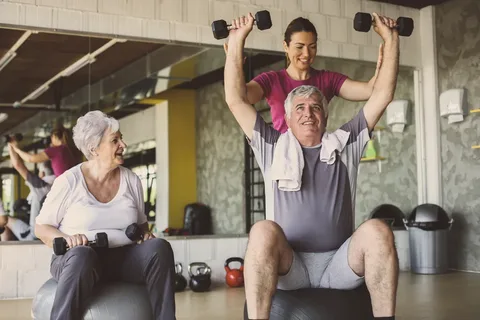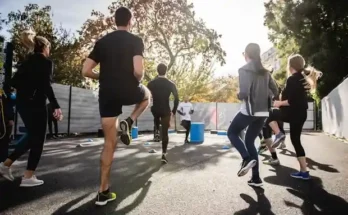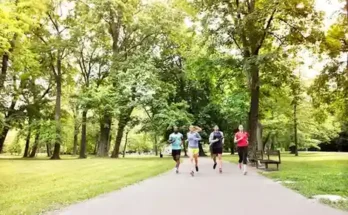Fitness is not just a trend, a challenge, or a New Year’s resolution—it’s a lifestyle, a mindset, and a commitment to your body and soul. In a world that celebrates speed, convenience, and instant gratification, fitness stands as a timeless pillar that demands consistency, patience, and discipline. Yet, the rewards it offers—strength, confidence, vitality, and resilience—are immeasurable.
People often mistake fitness for aesthetics. While looking good can be a wonderful byproduct, true fitness goes far beyond mirror reflections. It’s about how you feel, how you move, how you age, and how you live. The beauty of fitness lies in its inclusivity. You don’t have to be an athlete to be fit. You just have to show up—for yourself, every day, in small, intentional ways.
The Importance of Being Fit:
The human body is designed for movement. From our skeletal structure to our cardiovascular system, every part of us thrives when we’re active. Unfortunately, modern life often pushes us toward the opposite—long hours at desks, screens, and sedentary habits. That’s why fitness isn’t optional anymore; it’s essential.
-
Physical Benefits of Fitness
Fitness enhances every physical function. Regular movement strengthens the heart, boosts lung capacity, improves circulation, and keeps your joints and muscles in working order. When you’re fit, everyday tasks—like climbing stairs, carrying groceries, or playing with your kids—become easier and more enjoyable.
It also keeps chronic diseases at bay. Studies show that consistent exercise reduces the risk of heart disease, type 2 diabetes, high blood pressure, and certain types of cancer. Fitness can help maintain a healthy weight, which in turn reduces stress on your organs and joints.
But the benefits don’t stop there. Fitness also slows aging. It preserves bone density, increases flexibility, and improves balance, all of which are crucial for maintaining independence in later years.
-
Mental and Emotional Benefits
“To keep the body in good health is a duty… otherwise we shall not be able to keep our mind strong and clear,” said Buddha. And science backs this up. Physical activity releases endorphins—natural chemicals in the brain that boost mood and relieve stress. That post-workout high isn’t a myth; it’s a real biochemical reward for taking care of yourself.
Fitness can also combat anxiety, depression, and even brain fog. It improves sleep quality and increases self-esteem. In short, when your body feels strong and energized, your mind follows suit. Fitness empowers you to face life with greater clarity, calm, and confidence.
Fitness at Every Stage of Life:
Fitness is not exclusive to young athletes or gym enthusiasts. At every age, movement matters—it just takes different forms.
-
Children and Teens
For kids, fitness comes naturally through play. Running, jumping, dancing, riding bikes—these are all forms of exercise disguised as fun. For teenagers, sports and active hobbies can help navigate the emotional turbulence of adolescence while building strong bodies and healthy habits.
Encouraging youth to move regularly doesn’t just improve physical health—it lays the foundation for mental resilience, self-discipline, and lifelong well-being.
-
Adults
Adulthood often brings stress, deadlines, and limited time. This is when fitness becomes both harder and more crucial. Between work and responsibilities, many adults let their health slip. But staying active is the best investment you can make in yourself.
A 30-minute walk, home workouts, yoga, or strength training can all fit into a busy schedule. Fitness doesn’t require hours at the gym—it requires commitment and creativity.
-
Seniors
In older age, the goal of fitness shifts to maintaining mobility, flexibility, and balance. Gentle exercises like walking, tai chi, stretching, or swimming keep the body functioning and the mind alert.
“Those who think they have no time for exercise will sooner or later have to find time for illness,” said Edward Stanley. Staying active in senior years means preserving your independence and quality of life.
How to Become Fit?
Fitness doesn’t come from one intense session or a week of dieting. It’s built one day at a time, through habits, mindset, and sustainable routines. There’s no perfect path—only the one that works for you.
-
Move Your Body Daily
The key to fitness is consistency. Find what you enjoy—whether it’s dancing, cycling, lifting weights, or hiking—and make it part of your routine. Don’t be afraid to start small. Even a ten-minute walk is better than nothing.
You don’t need expensive equipment or a gym membership. Bodyweight exercises, outdoor activities, or YouTube tutorials can guide you. The real gym is your commitment.
-
Fuel Your Body Well
Fitness isn’t just about movement—it’s also about nourishment. What you put into your body fuels your energy, affects your recovery, and influences your results.
Aim for balanced meals: lean proteins, whole grains, colorful vegetables, healthy fats, and plenty of water. Avoid processed foods, sugar overload, and mindless snacking. Eat with intention and gratitude.
-
Rest and Recovery
Rest is a non-negotiable part of fitness. Overtraining or skipping sleep undermines your progress. Muscles grow and heal during rest. Mental clarity and hormonal balance depend on adequate sleep.
Listen to your body. Some days, rest is more productive than pushing through exhaustion. Fitness isn’t about punishment—it’s about partnership with your body.
-
Set Goals and Stay Motivated
Setting realistic goals keeps you focused and inspired. Whether it’s running a 5K, doing a push-up, losing weight, or just feeling more energetic, write it down. Track your progress and celebrate your wins, no matter how small.
Surround yourself with support—friends, fitness communities, or even social media groups. Motivation often comes from shared journeys.
Redefining Fitness:
Fitness isn’t about fitting into a mold or chasing trends. It’s about what makes you feel alive, empowered, and capable. For one person, fitness might mean lifting heavy weights. For another, it’s walking a few extra steps each day. Both are valid.
There will be days when you fall off track. That’s okay. The path to fitness is a spiral, not a straight line. Keep coming back. Keep showing up.
“Take care of your body. It’s the only place you have to live,” said Jim Rohn. Fitness is the ultimate form of self-respect. It’s proof that you value your time, your energy, and your future.
Conclusion:
Fitness is not a finish line—it’s a lifelong journey. It evolves with you, supports you, and grows with your goals. At every age and every stage, fitness builds the foundation for a fuller, more vibrant life.
To be fit is to honor your body’s capabilities. It’s to wake up feeling energized, to move with ease, and to age with grace. It’s a powerful gift you can give yourself—every single day.
So start now, right where you are. Take a walk. Stretch. Breathe deeply. And remember: you don’t need to be extreme, just consistent. In the story of your life, let fitness be your silent strength, your daily celebration, and your lifelong companion.




